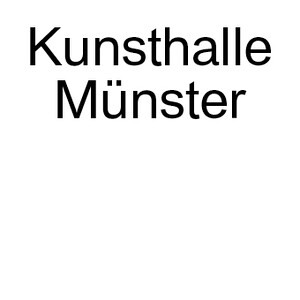Nobody Messes with Her
December 15, 2018–March 10, 2019
Hafenweg 28, 5th floor
48155 Münster
Germany
Hours: Tuesday–Sunday 12–6pm
T +49 251 4924191
kunsthalle@stadt-muenster.de
Mary Beth Edelson (b. 1933 in East Chicago) is one of the most important representatives of feminist art since the 1970s. In the course of her career the American artist has conducted ongoing research on the female identity. In her paintings, collages and performances she subtly and provokingly—and not without a sense of humour and irony—deconstructs the traditional iconography of femininity, questions societal constructions of femininity and challenges hegemonic patriarchal values. In Edelson’s first solo exhibition in a German institution, the Kunsthalle Münster is showing works spanning almost five decades of the pioneering artist’s production.
Before the backdrop of civil rights and women’s liberation movements of the late 1960s and the early 1970s, specific women’s issues were being publicly debated for the first time. Over hundreds of years, the notion of femininity being a “deviation from the norm”, as Simone de Beauvoir had described in her book The Second Sex (1951), had become firmly established: “Thus humanity is male and man defines woman not in herself but as relative to him; she is not regarded as an autonomous being.” In this context, the female artists felt the need to break up existing structures and to create their own artist language that would, in turn, open up a new realm of thought. By featuring in her works an independent female subject that does not define itself via its relationship to men, she breaks with the prevalent reality. She no longer portrays the woman as the other, as the relative object, but instead creates images of a genuinely feminine representation and develops a unique feminist aesthetic.
Edelson’s feminism can be experienced as a catalyst for an urgent, revolutionary search for identity—revolutionary in that is seeks identity not only through a socially paricipatory art, but through identification with a godess who is great because she represents resurrected nature, as well as nature’s power of renewal. Her mythic-natural approach is grounded on a performative re-enactment of ancient goddesses and cult figures. The series “Woman Rising” (1973–1977) shows the artist nude during different performances she held in nature. The photographs—subsequently painted over and collaged—share the topic of the rediscovery of female energy and the collective unconscious. Her series of “Cut Outs” (1973–2017), which bear different symbols from former civilizations, conceptually and formally allude to a vertical ascent of the female subject. In the context of the feminist movement, aside from dealing with women’s political, social and economic situations, the emphasis of femininity originates from the movement’s claim of focusing on a woman’s body and sexuality in order to gain a genuine female consciousness and to develop a self-awareness for a female identity.
In her works from the 1980s and 1990s, we no longer encounter her goddesses in the form of nature goddesses, but as film stars or pin-up girls. By combining traditional, spiritual nature goddesses with pop icons, Edelson points to the problematic separation between nature and culture—categories these groups would traditionally be classified in. Rather than occurring in the exhibition space, this encounter takes place in the works themselves: in a richness of shapes and forms, the most different characters are assembled here, to re-appear in ever-changing variations throughout the artist’s works.
Mary Beth Edelson’s works poignantly illustrate that under the overall term of feminism there exists a multitude of voices and choices. Her oeuvre creates an awareness for the cultural significance and diversity of feminist art, it is exemplary for the concept of a feminism that is playful, witty and diverse.
Mary Beth Edelson: Nobody Messes with Her is curated by Merle Radtke.


